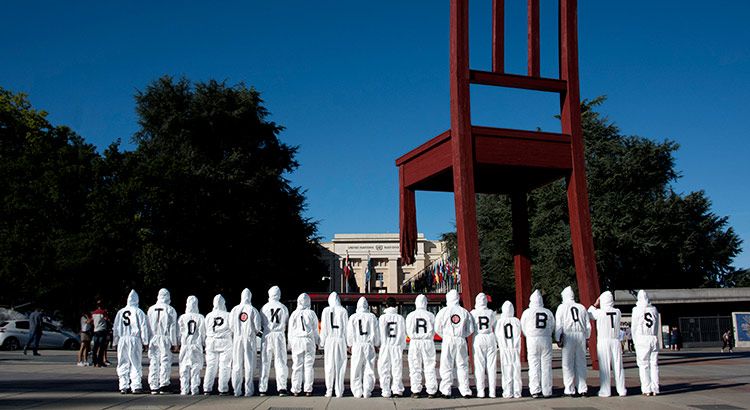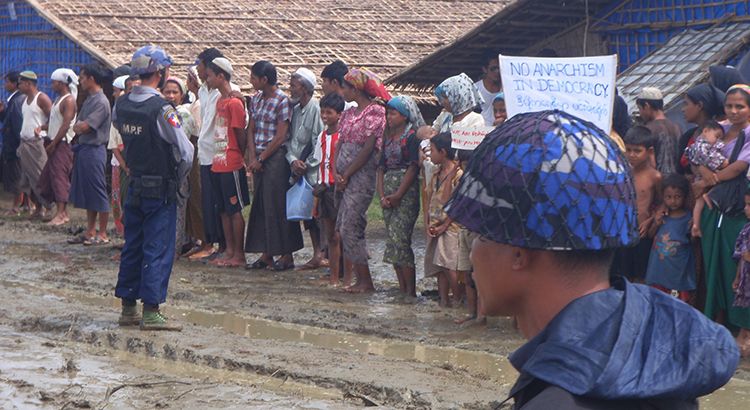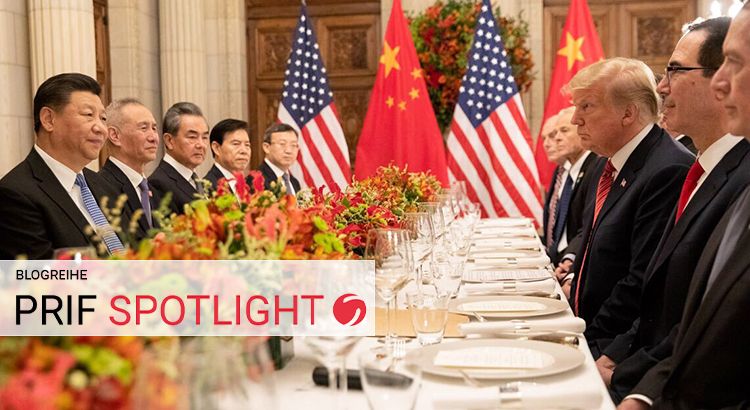Monat: September 2020
Nun ist es also passiert, was die nicht eben zahlreichen Beobachter des Konflikts um Bergkarabach seit Jahren prognostiziert haben: Ohne einen ernsthaften Verhandlungsprozess wird es früher oder später zu einem neuen Krieg zwischen Armenien und Aserbaidschan kommen. Dass dieser lange Jahre „eingefrorene“ Konflikt dauerhaft ruhiggestellt werden könnte, war und ist eine große Selbsttäuschung – der Armenier, aber auch der drei Vorsitzenden der sogenannten Minsker OSZE-Verhandlungsgruppe Russland, USA und Frankreich.
Digital diplomacy: The debate on lethal autonomous weapons systems in Geneva continues under unprecedented circumstances
Despite the global Covid-19 pandemic, the debate on lethal autonomous weapons systems within the Group of Governmental Experts (GGE) at the UN Convention on Certain Conventional Weapons (CCW) in Geneva, which has been going on since 2014, took place last week. With only a handful of diplomats present, the meeting was held in a hybrid format. While the pandemic and its restrictions might have been a factor that hampered progress in the debate, it went along better than many had expected. However, there were hardly any new arguments in the debate and the prospects of a regulation of LAWS did not really increase. Now is the time to make sure the deliberations build more substance because it should be in every state’s interest to avoid a technological arms race.
Cling Together, Swing Together? Arguments for Withdrawing from Nuclear Sharing
Plans to procure a replacement for the Tornado fighter jet have sparked a long-overdue debate about NATO’s nuclear sharing arrangements and the nuclear weapons stationed in Germany. The weapons cannot really be deployed for military purposes and they are ill-suited to hold the crumbling Alliance together. In fact, in times of smoldering hegemonial conflicts, they are a potential target in the event of nuclear escalation. Thus, in its own security interests and to augment its room for maneuver when it comes to foreign and security policy in the tradition of non-proliferation, Germany should pull out of the nuclear sharing program.
Hate speech in the context of mass atrocity crimes: How social media platforms help and hinder international criminal investigations
The May 2020 arrest of Félicien Kabuga brought an end to a manhunt spanning 26 years and two continents. The capture of the elusive alleged financier of the infamous RTLM hate speech radio station shows the importance of documenting hate speech for court proceedings if and when fugitives are eventually arrested. Today, extremist hate and atrocity speech in the context of genocide and war crimes takes place and is spread online. However, social media platforms have been slow to respond to and document it, and to cooperate with international authorities in doing so.
Der Fall Nawalny und die westliche Reaktion – keine Auswege aus der Destruktionsspirale?
Obwohl noch immer viele Fragen offen bleiben, wer genau und aus welchem Grund Alexey Nawalny vergiftet hat, wird bereits deutlich, dass der Fall Nawalny gravierende Folgen für die russisch-westlichen Beziehungen haben wird. Neue Sanktionen oder der Baustopp der Nordstream-II Pipeline – der Westen verfügt in seiner möglichen Gegenreaktion über eine Vielzahl von Optionen. Doch stellt sich durchaus die Frage, ob das System Putins sich überhaupt durch Druck vom Außen noch beeinflussen lässt oder dadurch nur noch verhärtet wird. Diese neue Eskalationsstufe im Konflikt mit Russland kann unbeabsichtigte Konsequenzen nach sich ziehen, was den Westen jedoch nicht davon abhalten sollte, klar und entschieden zu reagieren.
Fraying Ties: The Securitization of the US-China Relationship
The security dimension has long been the most contentious aspect of US-China relations, marked by strategic mistrust, great-power competition and several flashpoints in East Asia. Until recently, these tensions were moderated by much warmer and closer economic ties, civil society exchanges in business, education, academia, culture and tourism, as well as shared interests in globalization and trade. However, recent moves by the US and Chinese governments to “securitize” the previously cooperative aspects of their relationship have fundamentally altered this dynamic and greatly increased the likelihood of a permanent confrontation between the two great powers.





